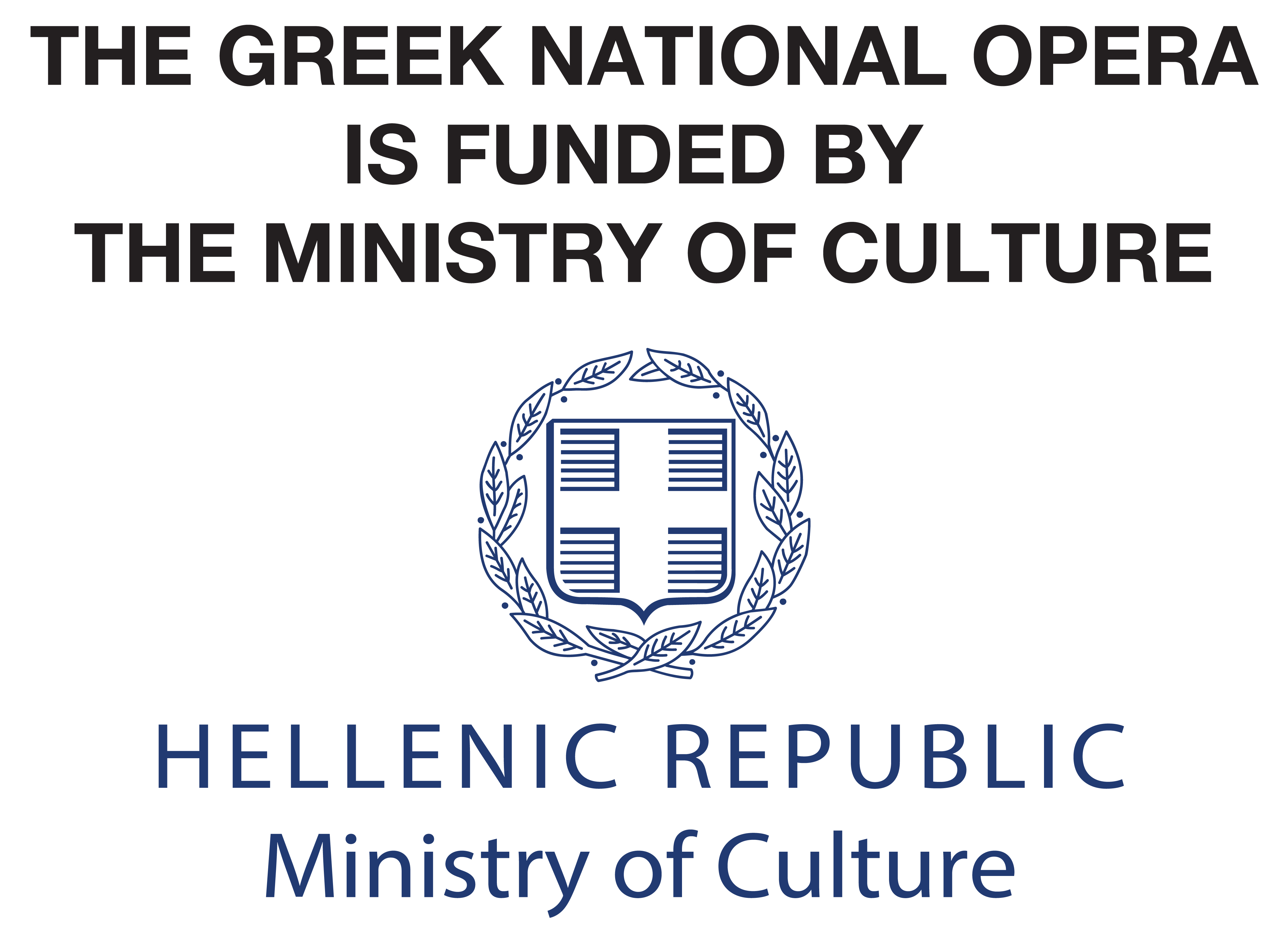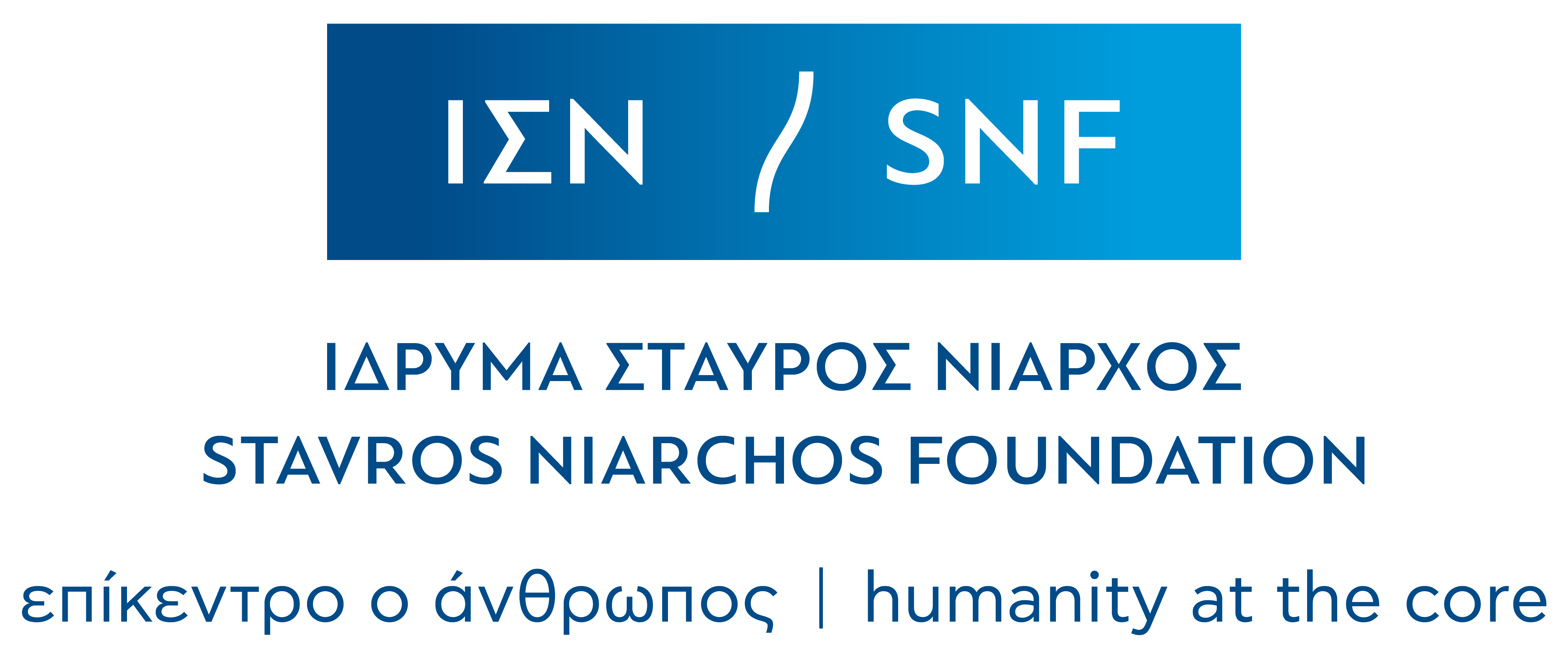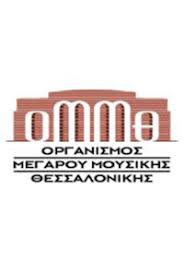Contact
ADDRESS
STAVROS NIARCHOS FOUNDATION
CULTURAL CENTER
364 Syggrou Avenue, Kallithea
TEL.
Box Office:
+30 213 0885700
Box Office email:
boxoffice@nationalopera.gr
Daily 09.00-21.00
info@nationalopera.gr
Register to our Newsletter

Dimitris Kountouras Baroque flute, recorder
Fani Vovoni Baroque violin
Andreas Linos viola da gamba
Elisa Barbessi harpsichord
Artistic curator: Dimos Goudaroulis
Lighting and projection design: Alexandros Seitaridis
Festival
Greek National Opera Alternative Stage – SNFCC
Starts at: 20.30
Running time: approximately 100 minutes

Alternative Stage Founding Donor

Major Sponsor of the Greek National Opera

The successful Baroque Music Festival is returning to the Greek National Opera Alternative Stage at the SNFCC, with the theme The Age of Transitions, on 16, 20, 21, and 22 November 2025. This year’s programme, curated by versatile and highly prolific artist Dimos Goudaroulis, focuses on the captivating music of the 18th century. It highlights the significant and constant shifts in style that mark this particularly fertile period, from the late Baroque era to the full bloom of Classicism. The Festival is realized in collaboration with the Thessaloniki Concert Hall.
The Festival features four concerts that cover the entire 18th century through a diverse programme. It begins with Antonio Vivaldi’s famous Four Seasons, a piece that was released exactly three hundred years ago, in 1725; it then explores the galant style of Georg Philipp Telemann and Louis-Gabriel Guillemain’s music; next, it revisits the “Sturm und Drang” music by Carl Philipp Emmanuel Bach, along with the preclassical style of Johann Christian Bach; afterward, it dives into Classicism with sophisticated works by Joseph Haydn and Wolfgang Amadeus Mozart; and finally, it reaches the late 18th century, showcasing Opus No. 1 by the young Ludwig van Beethoven, which heralds the dawning of a new era.
The 2025 Baroque Music Festival welcomes the Festival’s Baroque Orchestra, featuring prominent musicians from the Greek Baroque scene; the internationally acclaimed Spanish violinist Lina Tur Bonet, one of the most expressive and versatile violinists of the modern era and one of the most important and influential artists of our time; and the French cellist, gambist, and maestro Christophe Coin, who boasts a decades-long international career with a significant impact in the field of Early Music.
Style galant
Four exceptional musicians will present a programme dedicated to the style galant – the “noble” style that signals a stylistic and temporal shift from the late Baroque era to Classicism, characterized by a sense of nobility and a quality of lightness, as well as by a return to harmonic simplicity and melody.
This chamber music concert of extraordinary beauty and sophistication will feature compositions written for the four beloved instruments of the first half of the 18th century. These include pieces by the prolific composer Georg Philipp Telemann, the practically unknown in our time French violinist and composer Louis-Gabriel Guillemain, the Bohemian violinist and composer František Benda, and the master builder of Classicism, Josef Haydn.
Brief biographical notes
Elisa Barbessi
Musician and researcher, whose work lies at the intersection of artistic expression and academic research. She holds a master’s degree in piano (Conservatorio di Musica Luca Marenzio, Brescia), in harpsichord (Haute École de Musique de Genève, under the guidance of Alfonso Fedi, from whom she inherited the Taskin harpsichord), and in musicology (Sorbonne Université, Paris). She also holds a PhD in musicology, jointly awarded by Sorbonne Université and Università degli Studi di Roma Tor Vergata. A professor at the Conservatoire du Grand Avignon and a postdoctoral researcher at the Collegium Musicæ in Paris (2022–2024), she works on musical instrument temperaments and their perception. Her research led to the filing of a patent in France for the TemperApp application, which she designed and implemented while coordinating a team of musicians and researchers. Among her other specialties is the study and adaptation of Greek mythology in music, as evidenced by her recent publications, particularly the work Anamorfosi del mito. I personaggi femminili omerici nella cantata italiana fino al 1750 (Artemida, 2024).
Jerassimos Coidan
Pianist and harpsichordist. He has been recognised as one of the most versatile Greek keyboard performers. With studies in Greece (piano diploma with honours and first prize, music theory – fugue diploma with honours) and abroad (postgraduate studies in harpsichord at the Lemmensinstituut and the Royal Conservatory of Antwerp), he specialised in historically informed performance on the piano and period instruments (harpsichord, classical, and romantic fortepiano). For many years, he has been well known to Greek audiences for his distinctive performances and recitals, which include collaborations with leading conductors, soloists, and singers, as well as appearances with orchestras and solo performances on the piano, harpsichord, and fortepiano. In recent years, he has been directing the Baroque music ensemble Ensemble 1619, consisting of musicians and singers from Greece and abroad. He has performed with all the leading musical ensembles in Greece (Armonia Atenea, Athens State Orchestra, Thessaloniki State Symphony Orchestra, Symphony Orchestra of the Hellenic Broadcasting Corporation, etc) in Athens, Thessaloniki, and throughout the country.
Christophe Coin
French cellist, born in Caen in 1958. He studied in his native city with Jacques Ripoche, then in Paris with André Navarra. He was a disciple of Nikolaus Harnoncourt and Jordi Savall, with whom he worked for several years as a member of Hespèrion XX. As a soloist, he is regularly invited to appear with the most prestigious early music ensembles, such as Concentus Musicus Wien, the Academy of Ancient Music, and Il Giardino Armonico. He was artistic director of the Ensemble Baroque de Limoges for 20 years, winning recognition, for instance, for its recordings of Bach cantatas. In 1984 he founded the Quatuor Mosaïques, which he has since led. Mozart, Haydn, Beethoven, Schubert are among their main repertoire; their recordings repeatedly received the prestigious Gramophone Awards. Christophe Coin taught cello and viola da gamba at Schola Cantorum in Basel and at the Paris Conservatory. Over the course of his career, he has released more than fifty recordings, including Fantaisies Royales (1980), Purcell: Ten Sonatas in Four Parts (1982), Vivaldi: Six Cello Concertos (1989), Brossard: Grands Motets (1997), Le Souvenir (2011) and Vivaldi: Concerti Per Violoncello III (2019).
Paolo Zanzu
Italian conductor and soloist on the harpsichord and fortepiano. He studied first in Italy and later at the Conservatoire de Paris (CNSM) and the Royal Academy of Music in London. From an early stage, he developed a distinguished international career as a harpsichord and fortepiano soloist, performing at renowned festivals. He served as musical assistant to William Christie and, from 2016 to 2018, conducted the ensemble Les Arts Florissants in Lully’s Monsieur de Pourceaugnac (directed by Clément Hervieu-Léger), on tour throughout Europe and China. In 2017, John Eliot Gardiner invited him to join as his assistant for the worldwide Monteverdi 450 tour. In the same year, he founded Le Stagioni, a flexible ensemble comprising distinguished period-instrument musicians with international careers as soloists and members of leading European groups. The ensemble’s repertoire focuses on major works of the 18th and 19th centuries, performed with a historically informed approach. Alongside his concert activities, he has taught basso continuo at the Conservatoire Royal de Bruxelles since 2011.
Dimitris Kountouras
He specialises in historical flute genres and music up to the 18th century, while he teaches at the Ionian University and coordinates the Centre for Early Music at the Athens Conservatory. He studied recorder, baroque flute and early music performance practice in Utrecht, Milan, Vienna and Trossingen, and holds a doctorate in historical musicology from the National and Kapodistrian University of Athens. He has performed in venues and festivals in Europe, the Middle and the Far East, including Sala Verdi (Milan), Pablo Casals Hall (Tokyo), Vienna Concert Hall, Athens Concert Hall, Blumenthal Hall (Tel Aviv), Bahrain Festival, etc. He founded the music ensemble Ex Silentio, which he also conducts, and coordinates a series of events called Ostium, Medieval Music Days. He has collaborated with the Harmony of Nations Baroque Orchestra, Armonia Atenea, and the Vienna Symphony Orchestra. He has published studies and essays on the history and interpretation of music for publishing houses such as TIBIA, Brepols, Nefeli and Orfeos, among others.
Fani Vovoni
Studied violin at the Carinthian State Conservatory in Klagenfurt with Helfried Fister and at the Vienna University of Music and Performing Arts with Ernst Kovacic, from where she graduated with distinction (2007). She also studied Baroque violin with Hiro Kurosaki and later with Reinhard Goebel at the Mozarteum University in Salzburg. She was a member of the European Union Youth Orchestra as well as the European Union Baroque Orchestra. Her main interests are historical performance practice and contemporary music. A further interest in modern performance forms led to a postgraduate course in applied dramaturgy at the University of Music and Performing Arts in Vienna (2021). She is cooperating with various ensembles such as Klangforum Wien, Camerata Salzburg, Barruco, Concerto Stella Matutina, Il Pomo d’Oro, Black Page Orchestra, Ex Silentio, Latinitas Nostra, etc. She has performed at many prestigious festivals throughout Europe, America, Asia, and Africa. Her first performative and dramaturgical work was presented at the Music and Theatre Days Vienna (2019) and at the WUK Vienna (2020).
Panos Iliopoulos
Born in Greece, where he studied piano, music theory and composition, as well as musicology at the Music Studies Department of the National University of Athens. He subsequently studied composition and piano at the State University of Music and Performing Arts in Mannheim, as well as harpsichord and historical keyboard instruments at the Conservatorium van Amsterdam. As a composer, arranger and performer he has participated in numerous concerts, festivals, theatre and opera productions across Europe such as the Greek National Opera, Athens Epidaurus Festival, National Theatre of Greece, Oude Muziek Festival Utrecht, Concertgebouw and Muziekgebouw Amsterdam, Vienna Konzerthaus, Theater an der Wien, Nationaltheater Mannheim, Deutsche Oper Berlin, Badisches Staatstheater Karlsruhe, collaborating with orchestras and ensembles such as the Geneva Camerata, New Philharmonic Utrecht, Netherlands Bach Society, Armonia Atenea, Athens State Orchestra and Thessaloniki State Symphony Orchestra, and has been featured in broadcasts and recordings of several state broadcasting corporations, as well as the record labels Etcetera, Passacaille and Puzzlemusik.
Andreas Linos
He studied viola da gamba with Nima Ben David at the Conservatoire de Boulogne-Billancourt, where he won first prize in 2006. Since then he has developed a career as a chamber musician, collaborating with ensembles such as Le Poème Harmonique, L’Achéron, Le Baroque Nomade, Capriccio Stravagante, Le Concert Étranger, La Camera Delle Lacrime, Latinitas Nostra, with whom he has recorded around 20 albums. From 2008 to 2011, he organised the monthly season of the Consort Project, dedicated to viol ensembles and English music, at L’Archipel hall in Paris. At the same time, he studied at the Versailles School of Architecture and trained in string instrument making at the workshop of Bernard Prunier. He created many concert-shows with a combination of scenic elements in Périgord, Morocco, Paris and Mexico City. In 2012, he was the stage director as well as set and costume designer for John Blow’s Venus and Adonis, staged in the forest of Pelion in Greece. In 2014, he directed La Pellegrina at the Dijon Opera House with the ensemble Traversées Baroques. In 2015, Venus and Adonis became the subject of a new production at the Athens Concert Hall. He continued his exploration of the English operatic repertoire with Henry Purcell’s Dido and Aeneas, which he directed in 2016, concurrently with Monteverdi’s Il combattimento di Tancredi e Clorinda, for the Atelier Lyrique of Tourcoing.
Alexandros Seitaridis
Artist specialising in lighting design, video art, and 3D projection mapping. With a background in computer science (master’s in robotics), video and multimedia production, video editing, theatre pedagogy, and puppetry. He merges technical knowledge with artistic expression to create unique works. As the Production Manager of Music Village and a founding member of the art company Fortunati, he brings interactive performances to life, incorporating cutting-edge technology to enhance audience experience. He is also the founder of the international online radio station Radio Art. Additionally, he co-leads production for the International Clown Residency in Pelion and, since 2022, has served as president of the Cultural Association of Agios Lavrentios, promoting arts and culture with the vision to establish a centre for artistic expression. With a strong presence at international festivals, he applies innovative lighting and projection techniques. His professional philosophy centres on the continuous exploration of new forms of expression, merging technology and art to expand the boundaries and possibilities of contemporary artistic creation.
The production “Baroque Music Festival: The Age of Transitions” is part of the GNO Alternative Stage’s unit of programming titled “CYCLE OF THEMATIC CONCERTS”, which falls under the ACT “FESTIVAL EVENTS OF THE GNO ALTERNATIVE STAGE 2024-2025” » (MIS 6002467) with code 2024ΕΠ08570049 (Priority: “Fostering regional social cohesion through the enhancement of mechanisms and infrastructure to support employment, education, health care and socioeconomic inclusion” of the programme “Attica 2021-2027) and is co-financed by the European Regional Development Fund (ERDF) and National Resources.

STAVROS NIARCHOS FOUNDATION
CULTURAL CENTER
364 Syggrou Avenue, Kallithea
Box Office:
+30 213 0885700
Box Office email:
boxoffice@nationalopera.gr
Daily 09.00-21.00
info@nationalopera.gr